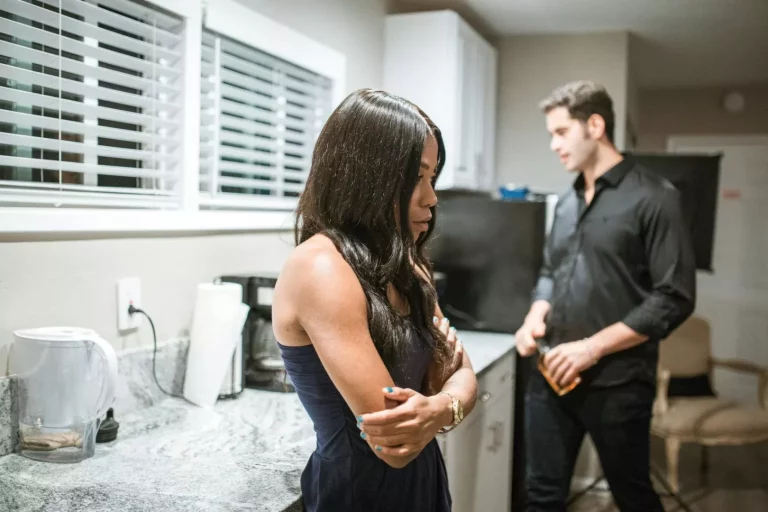Mutual Divorce: A Legal Procedure for Couples
Have you ever wondered how mutual divorce works? At TheBostonDivorceLawyer, our experienced lawyers can guide you through the process. Learn more about the ins and outs of mutual divorce in our latest article.
As stated by family law expert, mutual divorce refers to a type of divorce where both spouses agree to end their marriage and work together to reach a fair settlement regarding assets, child custody, and other important matters (William P. Statsky (1996). Family Law: The Essentials).
This type of divorce is typically less acrimonious and expensive compared to a contested divorce where spouses cannot agree on key issues. Mutual divorce is recognized and facilitated by the court system in many jurisdictions, provided that the agreement meets legal requirements and is fair to both parties.
Reasons for divorce
Sometimes couples drift apart and realize they don’t share the same goals or values anymore. Communicating and solving problems can become hard. Trust issues may arise, causing more strain. Money problems and disagreements can also add stress. Different parenting styles can lead to conflicts.
You know, infidelity or lack of emotional closeness can be major reasons for divorce. People change over time, and sometimes they no longer feel compatible. Long-standing issues might finally reach a breaking point.
Is mutual divorce valid?
This type of divorce is usually quicker and less confrontational than traditional divorce. In many places, mutual divorce is a legally accepted method to end a marriage.
For a mutual divorce, both spouses must agree to the divorce and come to terms on important matters like dividing property, child custody, and financial support. This can make the process smoother and lessen conflicts between them.
As far as I’m concerned, however, if one spouse later disagrees or if there are unresolved issues, a mutual divorce might not hold up. It’s very important for both parties to understand their rights and responsibilities fully before agreeing to it.
In general, mutual divorce can be a straightforward and friendly way to end a marriage. But it’s important for both sides to get legal advice to make sure the agreement is fair and legally binding.
Process of mutual divorce
Getting a mutual divorce means both partners talk and agree on how to end their marriage. This includes deciding who gets what property, who will take care of the children, and if any financial support is needed.
After agreeing on these terms, they file a joint divorce petition in court. Sometimes, they might also need to go to counseling or mediation to make the process smoother. The court checks the agreement to make sure it is fair and legal.
During the proceedings, both partners might need to show evidence like financial records or bring in witnesses to support their case. Keeping it real, being honest and open is very important.
Once everything is submitted, the court will give a final divorce decree. This officially ends the marriage and specifies the terms of the separation. Both individuals can then continue their lives separately.
In short, mutual divorce can be complicated and emotional, but it offers a peaceful way to end a marriage. Good communication and cooperation are essential to making the process smooth and fair for both sides.
Division of assets
When a couple decides to end their marriage, they need to figure out how to split their property, belongings, and money. This could involve things like the family home, cars, investments, and savings accounts.
Often, couples try to agree on how to divide everything without going to court. But if they can’t agree, a judge might have to decide for them.
Different states have different rules for dividing assets in a divorce. Some states split everything acquired during the marriage 50/50, which is known as community property. Honestly, other states divide assets in a way that is fair, but not always equal, called equitable distribution.
Various factors can affect how assets are divided, such as how long the marriage lasted, each spouse’s earning ability, each person’s contributions to the marriage, and any existing prenuptial agreements.
It’s very important that both spouses fully disclose all their assets and debts during the divorce process to ensure a fair split. Getting advice from a lawyer or mediator can help couples manage the division of assets in an amicable divorce.

Child custody
In a mutual divorce, both parents can agree on a custody plan that’s best for their kids. They might decide to share custody, meaning the children will live with each parent for some time. This could be on a set schedule or a more flexible plan.
Sometimes, one parent may have primary physical custody, meaning the children will mostly live with that parent. The other parent may have visitation rights, allowing them to spend time with the children according to a set schedule.
Legal custody refers to the ability to make important decisions for the children, like those about education, healthcare, and religion. For real, in a mutual divorce, parents might agree to share legal custody, meaning both will have a say in these decisions.
Parents can work together to create a parenting plan that outlines custody and visitation arrangements. This plan may also cover how they will communicate about the children and solve any disagreements.
It is important for parents to prioritize their children’s well-being when figuring out custody during a mutual divorce. Communication and cooperation between parents can help make the transition smoother for the kids.
The Final Analysis
Mutual divorce offers a cooperative and less adversarial approach to ending a marriage.
What TheBostonDivorceLawyers is recommending to keep up with is, by allowing both parties to work together to reach an agreement on important matters such as asset division and child custody, mutual divorce can help minimize conflict and emotional strain.
Overall, mutual divorce can provide a more amicable and efficient resolution for couples looking to end their marriage.







